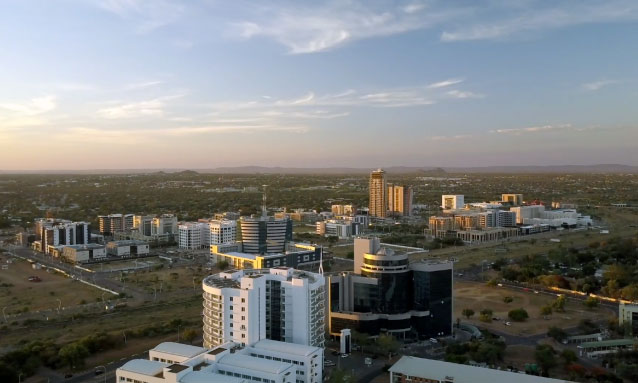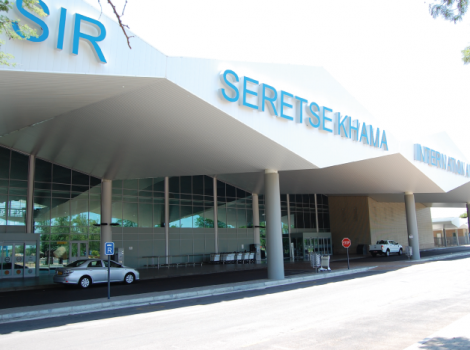
The story of the rise of Africa, the result of consistent economic growth and political stability on the first continent of the Millennium, has been hit hard in recent years. Headwinds from falling commodity prices have caused many African countries to experience a significant economic slowdown. Some of the continent’s largest economies such as Nigeria, South Africa and Egypt, have officially fallen into recession. The COVID pandemic, which has devastated economies around the world, has exacerbated these.
Despite the challenges, there is hope that the continent is on a slow path to recovery. Africa was fortunate enough to escape the worst of the first wave of the COVID pandemic. That allows them to prepare for subsequent waves while saving resources that are already scarce. The launch of the African Continental Free Trade Area (AfCFTA) in 2021 opens the entire continent to larger intra-continental trade and partnerships, providing African countries with growth and development opportunities.
Some countries are better suited than others to take advantage of new opportunities and prosper despite challenges. One such country is Southern Africa’s desert oasis, Botswana, a fascinating investment and trade destination. First, it is important to understand the background of the formation of Botswana.
In 1966 when it gained independence, the sparsely populated country was one of the poorest in the world. Its annual income per capita was about $ 70. Worse still, about 60% of government spending came from international aid. The country didn’t have much in the way of infrastructure, with only about 12 km of paved roads, and agriculture (mainly beef cattle breeding) accounted for 40% of its Gross Domestic Product (GDP).
Driven by relative political stability and economic growth, the situation has changed significantly since independence, especially in the last two decades. Botswana currently has a standard sovereign credit rating of “A” (Moody’s, S & P). High GDP growth rate (consistently about 5% over the last decade). Ease of Business Index ranked 87th out of 190 countries and 8th in Africa (World Bank Report, 2020). It has also received the same reputation from Transparency International for 18 consecutive years and has an identity as Africa’s least corrupt country. The country boasts a labour force with a high literacy rate of 87%. It strongly adheres to the rule of law and an autonomous judiciary. Its per capita GDP moved from $ 70 in 1960 to $ 7,859 in 2019.
Botswana is currently one of the few high- and middle-income countries in Africa. In this position, it provides clues as to how African countries can achieve economic prosperity. In the 35 years to 2001, it had the fastest per capita growth rate of any country in the world. With the discovery of diamonds in the early 1970s, Botswana had two options. Either fritter away or cautiously manage the resources. Thankfully, choosing the latter, the Government chose to use the diamond proceeds towards its social development efforts, with much of it going towards public infrastructure. The Government also improved government efficiency by curbing the expansion of civil servants.
“By saving mineral revenues, we overcame the curse of commodity volatility and prevented exchange rate volatility due to business cycle government spending.”
This approach to governance has helped reduce incentives for corruption and facilitate the transfer of power. This can be seen in the fact that the country’s former president, Ian Khama, voluntarily resigned, paving the way for former vice president, Mokgweetsi Masisi, to become president.
Botswana offers a corporate tax rate of 22% to make it more attractive to investors. This is below the global average of 23.5% and well below the African average of 27.85%. The country offers tariff exemptions on imports of plants and machinery, and there are no restrictions on foreign ownership. The country’s attempts at economic diversification presuppose commercialisation, mining, manufacturing (particularly focusing on import substitution), and services in the agricultural and agribusiness sectors. Other diversification opportunities include infrastructure and real estate development, hospitality and tourism, energy and transportation and logistics. The Special Economic Zones (SEZ) allow the country to develop infrastructure, state-of-the-art technology, beneficial inter-sectoral collaboration, economies of scale, specially trained and skilled workforce, and target domestic and international investors. The Government maintains it provides focused economic incentives.
Another major contributor to Botswana’s growing economy is tourism. Rich in flora and fauna as well as diverse, stunning landscapes, Botswana is a popular safari destination. The country is home to countless luxury safari lodges and a real magnet for African safari lovers the world over. The country also has a reputation for producing the best beef on the continent.
The story of Botswana is really inspiring. One shows that frustration can actually be used as an elixir for the growth of prosperity and change, with a vision and particular focus on good governance. Many African countries have studied how this small country, which focuses on peace, tranquillity, good governance and the rule of law, stands out on a continent that longs for good news. Suitable for learning. From this small oasis in the desert, the stability required of a country pursuing industrialisation and economic development is very visible. Botswana, the land of the Zebra, is open.
Source: http://www.jioforme.com/botswana-an-african-oasis-businessday-ng/101838/
About the writer: Adefeco is the Honorary Consul of Lagos from Botswana to Nigeria. Botswana, an African oasis-Businessday NG
For the complete article: http://businessday.ng/opinion/article/botswana-an-african-oasis/ Botswana, an African oasis-Businessday NG



